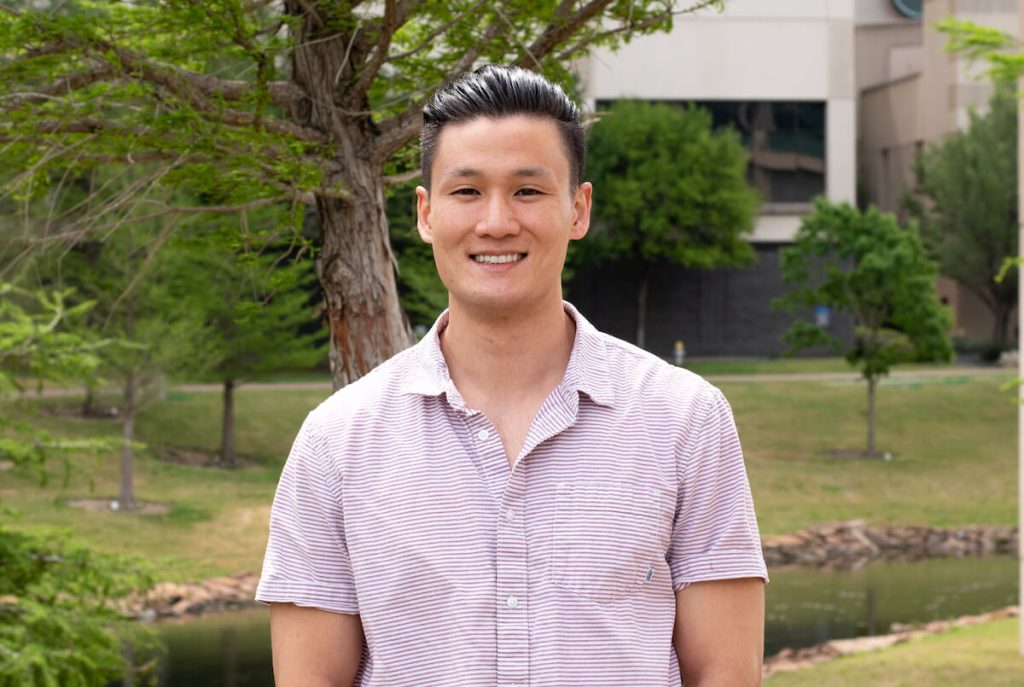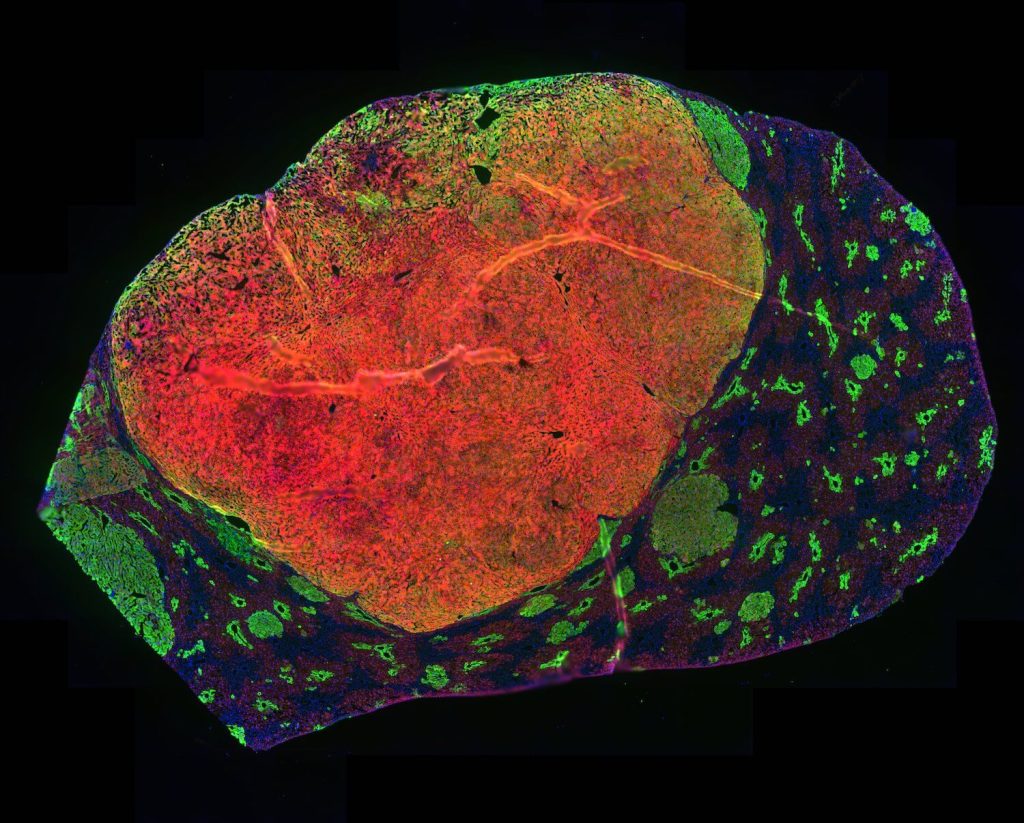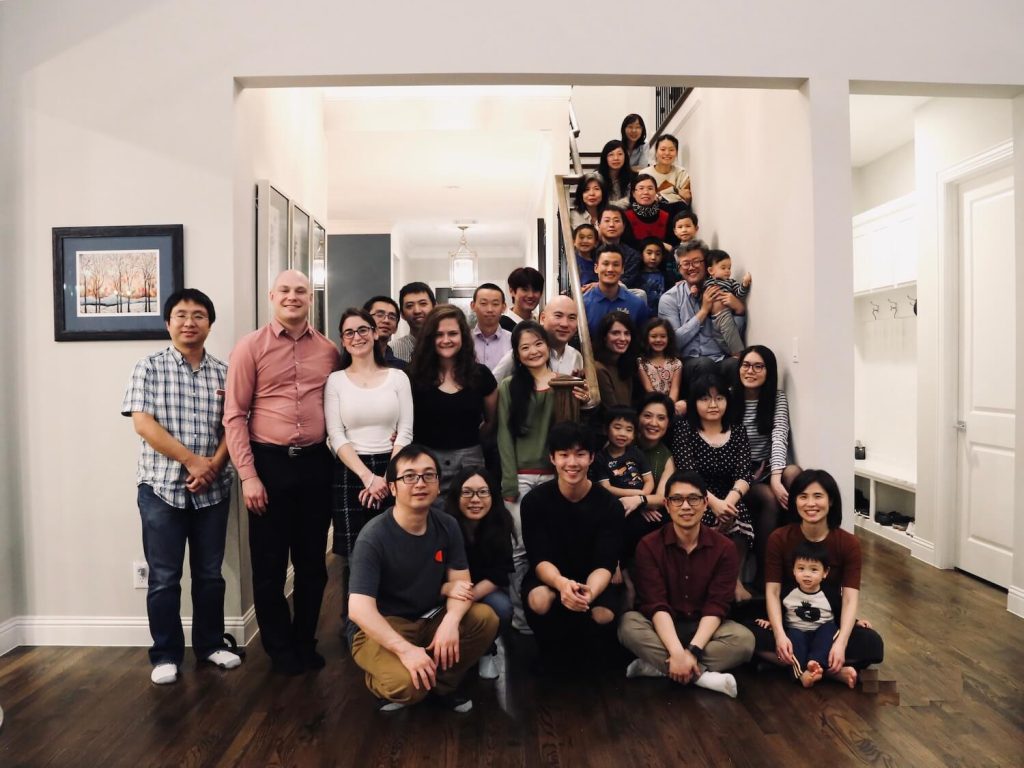June 9, 2021
Andrew Chung is an M.D./Ph.D. student in the Medical Scientist Training Program (MSTP) at UT Southwestern. In the Zhu lab, Andrew is studying the influence of liver metabolic zonation on cancer development.
What are you researching?
The liver is composed of around 70-85% of one cell type — the hepatocyte. Despite this cellular homogeneity, there is significant functional heterogeneity; in other words, a division of labor among hepatocytes. These metabolic differences are roughly divided into three different “zones” of hepatocytes. Besides the fact that these zones exist, relatively less is known about the functional impact of cells from these zones and their importance to human health. Our lab is studying these zones in a variety of normal and disease contexts to better understand how these different subpopulations of hepatocytes contribute to or influence human disease.
One question that has never been addressed is if these different zones have the same or different potential to generate liver cancer. What I found is that the same cancer-causing mutations in zone 1 vs. those in zone 3 lead to different cancer outcomes in mice. This suggests that the distinct metabolic processes being carried out in one zone vs. those in another can influence cancer development as well. My current work is to identify the specific metabolic genes that mediate these differences in the hopes that they can be therapeutically targeted to prevent or treat liver cancer.


How did you become interested in your field?
From a biological standpoint, cancer is an interesting disease. Life on Earth is primarily driven by evolution and natural selection, from the cellular level to the whole animal level. But in cancer, these principle forces are kicked into overdrive in a wholly self-destructive, detrimental manner. It’s very interesting to think about how this occurs and how it can be stopped. Clinically, cancer is a devastating disease and causes a huge burden on human health. Liver cancer, in particular, represents an unmet need in that the prognosis for liver cancer patients is typically poor. Though it can be tough to study liver cancer, I find it thoroughly rewarding to rise and meet this challenge head on because I have a great desire to be a scientific and clinical advocate for my patients in the future.
How did you end up in CRI?
Typically, M.D./Ph.D. students do 2-4 short “rotations” in various labs to find the right fit in terms of research topic, mentorship, and level of science. I only did one lab rotation in the Zhu lab, and I knew that this was the right place for me. At the time, the lab was just getting started on some exciting, leading-edge work in identifying the ARID1A gene as a critical player in both tissue regeneration and cancer. It was obvious that Dr. Zhu had the ambition, vision, and leadership skills to dive into new and unexplored topics and technologies. I also realized that he is a great mentor. He is constantly in and out of the lab and very accessible for any advice, suggestions, or other help. Perhaps most importantly, he is a very good communicator. I found that I could always be honest and upfront with him.
CRI itself is a very unique environment in how collaborative and open it is. It’s very easy to ask people in other labs for their particular expertise or knowledge when I don’t have the answers myself. I could see that this collaborative and supportive environment would enhance my training and education.


What would you be if you were not a scientist?
I have many interests outside of the lab, from politics and government to the law to astronomy and space. I think service to others and a pursuit of the truth are the themes here. Space medicine could still be a possibility down the road!
What are some of your favorite books?
This year, my two favorite books have been The Orphan Master’s Son by Adam Johnson and Caste: The Origins of Our Discontents by Isabel Wilkerson. The Orphan Master’s Son is a great novel following a young man in North Korea. It’s written so well; the story is compelling, and the details are so vivid — it’s great. Caste is a nonfiction book laying out a novel way to think about social structure and boundaries that have been cemented into American life. It’s an important book in its social impact but is also a great exercise in thinking about an old problem in a new way.

© 2025 Children’s Research Institute Dallas Texas | Privacy | Site Policies